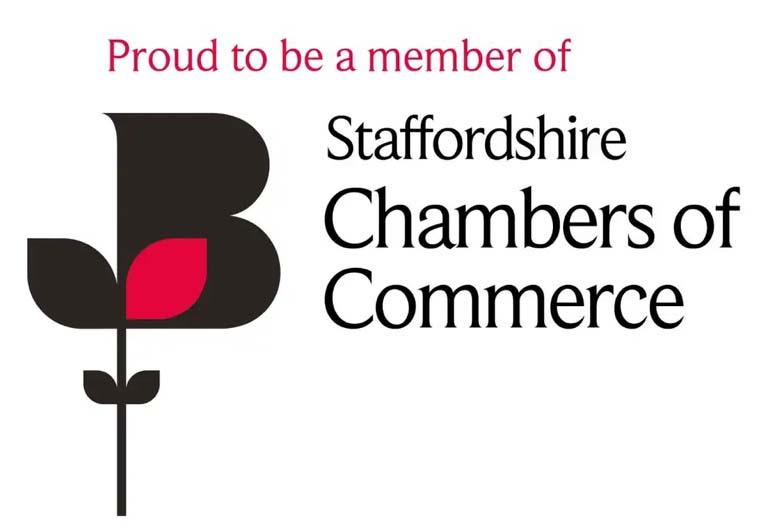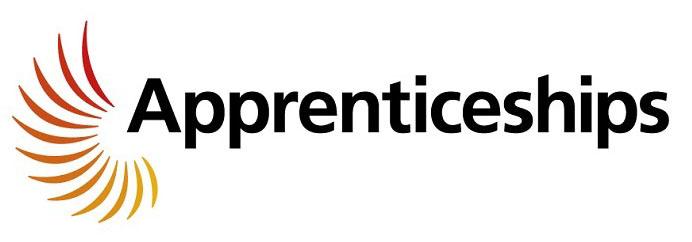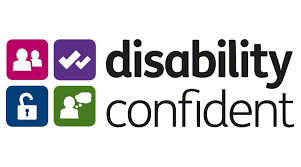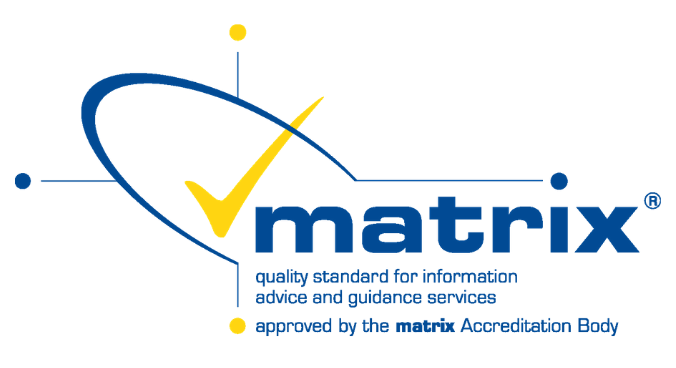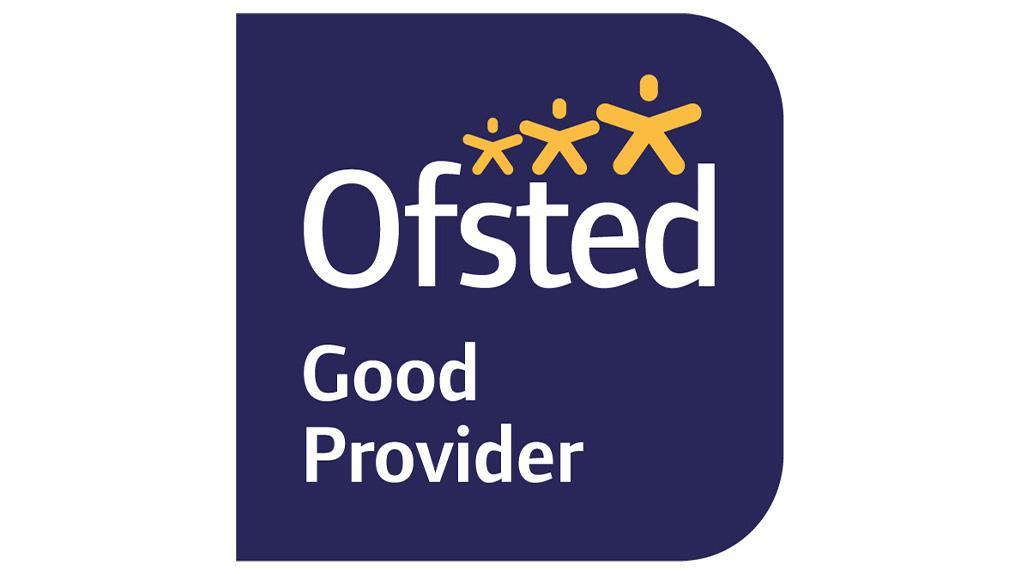
GDPR Policy
Introduction
This is North Staffordshire Engineering Group Training Association Limited’s policy, which conforms to GDPR 2018.
We are a training provider that delivers a unique experience to apprentices / learners and employers alike – developing and delivering outstanding training for industry by industry.
We are a regulated provider of education and training and work with partners in delivering education. This includes the Education and Skills Funding Agency (ESFA). Where arrangements with a data subject relate to ESFA funding or engagement, we are obliged to bring the ESFA privacy notice to your attention. Details are set out at:
Privacy policy (skillsfunding.service.gov.uk)
We respect your privacy and are committed to protecting your personal data. We will comply with the rights of data subjects in respect of receiving privacy information, and access, rectification, deletion and portability of personal data.
This privacy notice will inform you as to how we look after your personal data when you visit our website (regardless of where you visit it from) and in respect of your engagement with us. Whether you are a prospective apprentice / learner, already an apprentice / learner, training course attendee, an employer representative or even if you are just visiting our premises / website.
This privacy notice tells you about your privacy rights and how the law protects you.
Please also use the glossary to understand the meaning of some of the terms used in this privacy notice.
Important information and who we are
Purpose of this privacy notice
This privacy notice aims to give you information on how North Staffordshire Engineering Group Training Association Limited’s systems are used to collect and process your personal data. This maybe through your use of our website and our wider engagement with you, including when you sign up to our newsletter, email an enquiry, register with us, sign up to one of our courses or partner with us as an employer.
Our website and our services are not intended for children (for the purposes of this privacy notice those aged 13 years of age or younger) and we do not knowingly collect data relating to children.
It is important that you read this privacy notice together with any other privacy notice or fair processing notice we may provide on specific occasions when we are collecting or processing personal data about you so that you are fully aware of how and why we are using your data.
Controller
North Staffordshire Engineering Group Training Association Ltd is the controller and responsible for your personal data (collectively referred to as NSEGTA, we, us or our in this privacy notice).
We have appointed a data protection officer (DPO) who is responsible for overseeing questions in relation to this privacy notice. If you have any questions about this privacy notice, including any requests to exercise your legal rights, please contact the DPO using the details set out below.
Our contact details
North Staffordshire Engineering Group Training Association Ltd
Hanley Technical Institute
151-153 Marsh Street North,
Hanley,
Stoke on Trent
Staffordshire ST1 5HR
Company Registration Number: 926888
Data Protection Officer – Sarah Stanway (Chief Executive)
Data Protection Officer email address – sarah.stanway@nsegta.co.uk
You have the right to make a complaint at any time to the Information Commissioners Office (ICO) who are the UK supervisory authority for data protection issues (www.ico.org.uk). We would, however, appreciate the chance to deal with your concerns before you approach the ICO so please contact us in the first instance.
Changes to the privacy notice and your duty to inform us of changes
This version was last updated on 1st April 2025.
It is important that the personal data we hold about you is accurate and current. Please keep us informed if your personal data changes during your relationship with us.
Third party links
The website may include links to third party websites, plug-ins and applications. Clicking on those links or enabling those connections may allow third parties to collect or share data about you. We do not control these third party websites and are not responsible for their privacy statements. When you leave our website, we encourage you to read the privacy notice of every website you visit.
The data we collect about you
Personal data or personal information means any information about an individual from which that person can be identified. It does not include data where the identity has been removed (anonymous data).
We will ensure that any consent based processing meets standards of active, informed consent and those such consents are recorded, filed and are available for audit purposes.
We may collect, use, store and transfer different kinds of personal data about you, which we have grouped together as follows:
Identity data – includes first name, maiden name, last name, username or similar identifier, marital status, title, date of birth and gender.
Contact data – includes billing address, delivery address, email address and telephone numbers
Education data – includes information about your educational history, educational establishments attended, training undertaken, qualifications and assessment history and course engagement information.
Financial data – includes bank account and payment card details
Transaction data – includes details about payments to and from you and other details of products and services you have purchased from us, courses you have applied for and/or attended and course related information.
Technical data – includes internet protocol (IP) address, your login data, browser type and version, time zone setting and location, browser plug-in types and versions, operating system and platform and other technology on the devices you use to access this website.
Profile data – includes your username and password, enquiries or applications made by you, your interests, preferences, feedback and survey responses.
Usage data – includes information about how you use our website and services
Marketing and Communications data – includes your preferences in receiving marketing from us and our third parties and your communication preferences.
We also collect, use and share Aggregated data such as statistical or demographic data for statistical, analysis and/or legally required auditing purposes.
Aggregated data may be derived from your personal data but is not considered personal data in law as this data does not directly or indirectly reveal your identity. For example, we may aggregate your Usage data to calculate the percentage of users accessing a specific website feature. We may also aggregate transaction data relating to engagement with courses and apprenticeship arrangements. However, if we combine or connect aggregated data with your personal data so that it can directly or indirectly identify you, we treat the combined data as personal data which will be used in accordance with this privacy notice.
We may collect Special Categories of Personal data about you (this includes details about your race or ethnicity, religious or philosophical beliefs, sex life, sexual orientation, trade union membership and information about your health). We collect that information as part of our obligations around gathering and reporting equality information and to support provision of service delivery to meet Data Subject needs and only as permitted by law. We may also collect information about criminal convictions and offences but this is limited to what we are legally entitled to collect and we make use of this only to the extent permitted by law.
We will only collect such Special Category data as permitted by law and as required in order to provide our services to you, to engage with clients who might offer you work and to meet legal obligations. We will not share that information without your specific agreement unless we are legally obliged to do so, or the processing is necessary for carrying out obligations in the field of employment, necessary for assessment of working capacity or in the public interest.
If you fail to provide personal data
Where we need to collect personal data by law or under the terms of a contract we have with you and you fail to provide that data when requested, we may not be able to perform the contract we have or are trying to enter with you (e.g. to provide you with training services or access to an apprenticeship opportunity). In this case, we may have to cancel a service you have with us but we will notify you if this is the case at the time. We will do all we reasonably can to avoid such a situation arising
How is your personal data collected?
We use different methods to collect data from and about you including through:
Direct interactions – You may give us your identity, contact, education and financial data by filling in forms or by corresponding with us by post, phone, email or otherwise. This includes personal data you provide when you:
- Apply for a course or services
- Create an account on our website
- Subscribe to our service or publications
- Request marketing to be sent to you
- Enter a competition, promotion or survey
- Give us some feedback
Automated technologies or interactions
As you interact with our website, we may automatically collect technical data about your equipment, browsing actions and patterns. We collect this personal data by using cookies, server logs and other similar technologies. We may also receive technical data about you if you visit other websites employing our cookies.
Third parties or publicly available sources
We may receive personal data about you from various third parties and public sources as set out below:
Identity, contact and education data from government education establishments, schools, colleges and careers services
Identity, contact and education data from employers.
How we use your personal data
We will only use your personal data when the law allows us to.
When using your data we will ensure ongoing confidentiality, integrity, availability and resilience of processing systems and services to ensure your data remains safe.
Most commonly, we will use your personal data in the following circumstances:
- To maintain records of personal data processing activities
- Where we need to perform the contract we are about to enter into or have entered into with you
- Where it is necessary for our legitimate interests (or those of a third party) and your interests and fundamental rights do not override those interests
- Where we need to comply with a legal or regulatory obligation.
Generally, we do not rely on consent as a legal basis for processing your personal data other than in relation to the special categories of personal data, details of which and condition for processing are set out above.
We may also send direct marketing communications to you via email or text message based on consent. You have the right to withdraw consent to marketing at any time by contacting us. Unsubscribe opportunities will be presented to you when we communicate with you on a direct marketing basis.
You can find out more about the types of lawful basis that we will rely on to process your personal data in the Glossary following.
Purposes for which we will use your personal data
We have set out below, in a table format, a description of the ways we plan to use your personal data and which of the legal bases we rely on to do so. We have also identified what our legitimate interests are where appropriate.
Note that we may process your personal data for more than one lawful ground depending on the specific purposes for which we are using your data. Please contact us in writing at NSEGTA Ltd, Hanley Technical Institute, 151-153 Marsh Street North, Hanley, Stoke-on-Trent, Staffordshire ST1 5HR if you need details about the specific legal ground we are relying on to process your personal data where more than one ground has been set out in the table below.
| Purpose/Activity | Type of data | Lawful basis for processing including basis of legitimate Interest |
| To register you as a new candidate including gathering information necessary to allow you to be offered course participation and to establish your suitability, training, employment, health, driving and criminal conviction history (to the extent reasonably required and only as permitted by law) taking particular note of the Rehabilitation of Offenders Act 1974
|
a) Identity
b) Contact c) Education d) Special Category |
a) Performance of a contract with you
b) Necessary to comply with a legal obligation c) Assessment of working capacity d) Necessary for the purposes of carrying out the obligations and exercising specific rights of the controller or of the data subject in the field of employment and training |
| To engage with you, in respect of applications to training courses and support services and participation on courses and in respect of support services including:
a) Managing payments, fees and charges b) Managing assignments and engagement related activities e.g. time and attendance and incidents management c) Engaging with you in respect of support services, training records and training d) Engaging with your employer and education authorities and funders e) Engaging with those with parental responsibility f) Collect and recover money owed to us
|
a) Identity
b) Contact c) Financial d) Transaction e) Marketing and communications f) Special category g) Employment |
a) Performance of a contract with you
b) Necessary for our legitimate interests (to recover debts due to us) c) Necessary to comply with a legal obligation d) Assessment of working capacity e) Necessary for the purposes of carrying out the obligations and exercising specific rights of the controller or of the data subject in the field of employment and training |
| To manage our relationship with you which will include:
a) Notifying you about changes to our terms or privacy policy b) Asking you to leave a review or take a survey |
a) Identity
b) Contact c) Profile d) Marketing and communications |
a) Performance of a contract with you
b) Necessary to comply with a legal obligation c) Necessary for our legitimate interests (to keep our records updated and to study how customers use our products/services)
|
| To enable you to partake in a prize draw, competition or complete a survey | a) Identity
b) Contact c) Profile d) Usage e) Marketing and communications |
a) Performance of a contract with you
b) Necessary for our legitimate interests (to study how customers use our products/services, to develop them and grow our business) |
| To administer and protect our organisation and website (including troubleshooting, data analysis, testing, system maintenance, support, reporting and hosting of data) | a) Identity
b) Contact c) Technical |
a) Necessary for our legitimate interests (for running our business, provision of administration and IT services, network security, to prevent fraud and in the context of a business reorganisation or group restructuring exercise)
b) Necessary to comply with a legal obligation |
| To deliver relevant website content and advertisements to you and measure or understand the effectiveness of advertising we serve to you | a) Identity
b) Contact c) Profile d) Usage e) Marketing and communications f) Technical |
Necessary for our legitimate interests (to study how customers use our products/services, to develop them, to grow our business and to inform our marketing strategy) |
| To use data analytics to improve our website, products/services, marketing, customer relationships and experiences | a) Technical
b) Usage |
Necessary for our legitimate interests (to define types of customers for our products and services, to keep our website updated and relevant, to develop our business and to inform our marketing strategy) |
| To make suggestions and recommendations to you about goods or services that may be of interest to you | a) Identity
b) Contact c) Technical d) Usage e) Profile |
Necessary for our legitimate interests (to develop our products/services and grow our business) |
Marketing
We strive to provide you with choices regarding marketing and advertising.
Promotional offers from us
We may use your identity, contact, technical, usage and profile data to form a view on what we think you may want or need, or what may be of interest to you. This is how we decide which products, services and offers may be relevant for you.
You will receive marketing communications from us if you have requested information from us or purchased services or engaged in applying for a course with us or if you provided us with your details when you entered a competition or registered for a promotion and in each case, you have not opted out of receiving that marketing.
Third party marketing
We will get your express opt-in consent before we share your personal data with any third party for marketing purposes.
Opting out
You can ask us or our third partied to stop sending you marketing messages at any time by following the opt-out links on any marketing message sent to you or by contacting us in writing at North Staffs Engineering Group Training Association Ltd, Hanley Technical Institute, 151-153 Marsh Street North, Hanley, Stoke-on-Trent, Staffordshire ST1 5HR.
Change of purpose
We will only use your personal data for the purposes for which we collect it unless we reasonably consider that we need to use it for another reason and that reason is compatible with the original purpose. If you wish to get an explanation as to how the process for the new purpose is compatible with the original purpose, please contact us in writing at North Staffs Engineering Group Training Association Ltd, Hanley Technical Institute, 151-153 Marsh Street North, Hanley, Stoke-on-Trent, Staffordshire ST1 5HR.
If we need to use your personal data for an unrelated purpose, we will notify you and we will explain the legal basis which allows us to do so.
Please note that we may process your personal data without your knowledge or consent in compliance with the above rules where this is required or permitted by law.
Disclosures of your personal data
We may have to share your personal data with the parties set out below for the purposes set out in the table previously stated.
- External third parties
- Educational establishments
- Funding bodies including the Department for Education and Ofsted
- Employers
- Individuals with parental responsibility (where under 16 years of age or required by law)
Third parties to whom we may choose to sell, transfer, or merge parts of our business or our assets. Alternatively, we may seek to acquire other businesses or merge with them. If a change happens to our business, then the new owners may use your personal data in the same way as set out in this privacy notice.
We require all third parties to respect the security of your personal data and to treat it in accordance with the law. We do not allow our third party service providers or data processors to use your personal data for their own purposes and only permit them to process your personal data for specified purposes and in accordance with our instructions.
International transfers
We do not transfer your personal data outside the UK. If such transfers will take place, we will ensure legal safeguards are in place to legitimise transfer of your personal data.
Data security
We have put in place appropriate security systems/measures to prevent your personal data from being accidentally lost, used or accessed in an unauthorised way, altered or disclosed. In addition, we limit access to our personal data to those employees, agents, contractors and other third parties who have a business need to know. They will only process your personal data on our instructions and they are subject to a duty of confidentiality.
We have put in place procedures to deal with any suspected personal data breach and will notify you and any applicable regulator of a breach where we are legally required to do so.
Data retention
How long will you use my personal data for?
We will only retain your personal data for as long as necessary to fulfil the purposes we collected it for including for the purposes of satisfying any legal, accounting or reporting requirements.
To determine the appropriate retention period for personal data, we consider the amount, nature and sensitivity of the personal data, the potential risk of harm from the unauthorised use or disclosure of your personal data, the purposes for which we process your personal data and whether we can achieve those purposes through other means and the applicable legal requirements.
Details of retention periods for different aspects of your personal data are available in our retention policy which you can request from us by contacting us in writing at North Staffs Engineering Group Training Association Ltd, Hanley Technical Institute, 151-153 Marsh Street North, Hanley, Stoke-on-Trent, Staffordshire ST1 5HR.
In some circumstances, you can ask us to delete your data – see Request Erasure further on for further information.
In some circumstances, we may anonymise your personal data (so that it can no longer be associated with you) for research or statistical purposes in which case we may use this information indefinitely without further notice to you.
Your legal rights
Under certain circumstances, you have rights under data protection laws in relation to your personal data. Please see below to find out more about these rights.
If you wish to exercise any of the rights set out above, please contact us in writing at North Staffordshire Engineering Group Training Association Ltd, Hanley Technical Institute, 151-153 Marsh Street North, Hanley, Stoke-on-Trent, Staffordshire ST1 5HR.
No fee usually required
You will not have to pay a fee to access your personal data (or to exercise any of the other rights). However, we may charge a reasonable fee if your request is clearly unfounded, repetitive or excessive. Alternatively, we may refuse to comply with your request in these circumstances.
What we may need from you
We may need to request specific information from you to help us confirm your identity and ensure your right to access your personal data (or to exercise any of your other rights). This is a security measure to ensure that personal data is not disclosed to any person who has no right to receive it. We may also contact you to ask you for further information in relation to your request to speed up our response.
Time limit to respond
We try to respond to all legitimate requests within one month. Occasionally, it may take us longer than a month if your request is particularly complex or you have made a number of requests. In this case, we will notify you and keep you updated.
Glossary
LAWFUL BASIS
Legitimate Interest – means the interest of our business in conducting and managing our business to enable us to give you the best service/product and the best and most secure experience. We make sure we consider and balance any potential impact on you (both positive and negative) and your rights before we process your personal data for our legitimate interests. We do not use your personal data for activities where our interests are overridden by the impact on you (unless we have your consent or are otherwise required or permitted by law). You can obtain further information about how we assess our legitimate interests against any potential impact on you in respect of specific activities by contacting us in writing at North Staffs Engineering Group Training Association Ltd, Hanley Technical Institute, 151-153 Marsh Street North, Hanley, Stoke-on-Trent, Staffordshire ST1 5HR.
Performance of Contract – means processing your data where it is necessary for the performance of a contract to which you are a party or to take steps at your request before entering into such a contract.
Comply with a legal or regulatory obligation – means processing your personal data where it is necessary for compliance with a legal or regulatory obligation that we are subject to.
THIRD PARTIES
External third parties – These include:
- Service providers acting as processors based in the EEA who provide IT and system administration services.
- Professional advisors acting as processors or joint controllers including lawyers, bankers, education consultants, auditors and insurers based in the EEA who provide consultancy, banking, legal, insurance and accounting services.
- HM Revenue & Customs, regulators, public funding bodies and other authorities based in the EEA who require reporting of processing activities in certain circumstances.
YOUR LEGAL RIGHTS
NSEG comply with the rights of data subjects in respect of receiving privacy information.
Any person shall have the right to request and obtain, free of charge, information on their personal data subject to processing, the origin of such data, as well as the communications made or planned.
Additionally, the interested party may request: access to their data, rectification of their data, cancellation or portability of their personal data.
You have the right to:
Request access to your personal data (commonly known as a ‘data subject access request’). This enables you to receive a copy of the personal data we hold about you and to check that we are lawfully processing it.
Request rectification / correction of the personal data that we hold about you. This enables you to have any incomplete or inaccurate data we hold about you corrected though we may need to verify the accuracy of the new data you provide to us.
Request erasure of your personal data. This enables you to ask us to delete or remove personal data where there is no good reason for us continuing to process it. You also have the right to ask us to delete or remove your personal data where you have successfully exercised your right to object to processing (see below), where we may have processed your information unlawfully or where we are required to erase your personal data to comply with local law. Note, however, that we may not always be able to comply with your request of erasure for specific legal reasons which will be notified to you, if applicable, at the time of your request.
Object to processing of your personal data where we are relying on a legitimate interest (or those of a third party) and there is something about your particular situation which makes you want to object to processing on this ground as you feel it impacts on your fundamental rights and freedoms. You also have the right to object where we are using your personal data for direct marketing purposes. In some cases, we may demonstrate that we have compelling legitimate grounds to process your information which override your rights and freedoms.
Request restriction of processing of your personal data. This enables you to ask us to suspend the processing of your personal data in the following scenarios:
- If you want us to establish the data’s accuracy
- Where our use of the data is unlawful but you do not want us to erase it
- Where you need us to hold the data even if we no longer require it as you need to establish, exercise or defend legal claims
- You have objected to our use of your data but we need to verify whether we have overriding legitimate grounds to use it.
Right to data portability – You have a right to obtain and reuse your personal data for your own purposes. We will allow you to move, copy or transfer personal data easily from one IT environment to another in a safe and secure way, without affecting its usability.
Request the transfer of your personal data to you or to a third party. We will provide to you, or a third party you have chosen, your personal data in a structured, commonly used, machine-readable format. Note that this right only applies to automated information which you initially provided consent for us to use or where we used the information to perform a contract with you.
Withdraw consent at any time where we are relying on consent to process your personal data. However, this will not affect the lawfulness of any processing carried out before you withdraw your consent. If you withdraw your consent, we may not be able to provide certain products or services to you. We will advise you if this is the case at the time you withdraw your consent.
Effectiveness of Measures
We regularly test, assess and evaluate the effectiveness of our measures we have in place to ensure compliancy with GDPR and the protection of the rights of data subjects. We carry out regular spot check audits throughout the organisation to ensure data is being processed and stored securely.
NSEG have Cyber security measures in place and has achieved the Cyber Essentials Certificate.
Approved and signed by:
Sarah Stanway
Chief Executive
Reviewed 1st April 2025
(to be reviewed January 2026)

